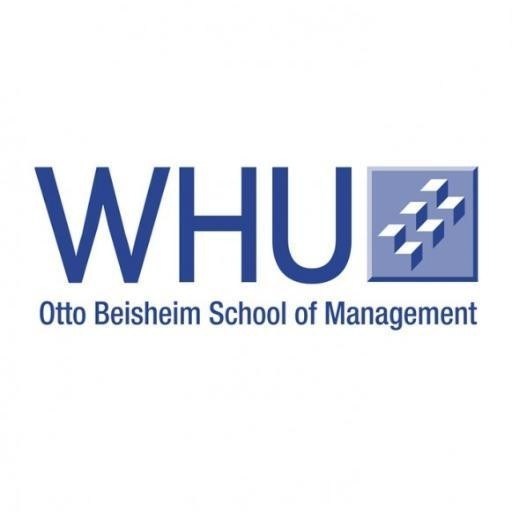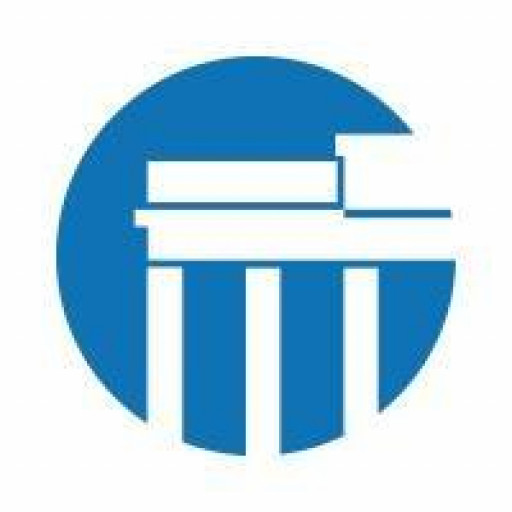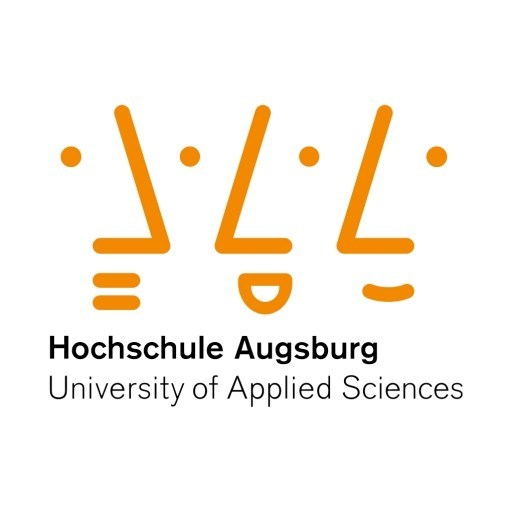Photos of university
The Master of Science in Finance at Ulm University is a comprehensive and rigorous programme designed to equip students with advanced theoretical knowledge and practical skills essential for a successful career in the financial sector. This graduate programme emphasizes a strong foundation in financial theories, quantitative methods, and real-world applications, preparing graduates to navigate complex financial environments confidently and ethically. Throughout the course, students explore a wide range of topics, including corporate finance, investment analysis, risk management, financial markets, and financial regulations. The curriculum is structured to foster critical thinking, analytical skills, and decision-making capabilities, enabling graduates to solve complex financial problems and develop innovative solutions. Students benefit from a blend of lectures, seminars, case studies, and hands-on projects, often collaborating with industry partners to gain practical experience. Ulm University also offers opportunities for specialization in areas such as financial engineering or sustainable finance, allowing students to tailor their studies to their career interests. The programme is taught by experienced academics and industry practitioners who bring real-world insights into the classroom. Additionally, students have access to the university’s extensive resources, including state-of-the-art research facilities, libraries, and financial databases. The programme emphasizes international perspectives, preparing students to work in global financial markets and with diverse stakeholders. Graduates of the MSc in Finance from Ulm University typically pursue careers in banking, investment firms, corporate finance departments, risk analysis, financial consulting, or start-ups. The programme also provides a solid foundation for those interested in pursuing doctoral studies or professional certifications such as CFA or FRM. With its rigorous academic approach, strong industry links, and focus on employability, the MSc in Finance at Ulm University offers a pathway to a dynamic and rewarding career in finance.
The Master’s program in Finance at Ulm University offers a comprehensive and rigorous education designed to equip students with the theoretical knowledge and practical skills necessary for successful careers in the financial industry. This program focuses on developing analytical capabilities, quantitative methods, and a deep understanding of financial markets, corporate finance, risk management, and investment strategies. Throughout the curriculum, students are guided to apply advanced mathematical and statistical techniques to real-world financial problems, fostering a strong foundation for both academic research and professional practice.
The program combines core courses in finance, economics, and quantitative methods with specialized electives allowing students to tailor their education according to their interests and career goals. Topics covered include asset pricing, financial modeling, banking, financial regulation, and sustainable finance. Additionally, students gain hands-on experience through case studies, simulations, and internships, facilitating the transition from academic study to industry applications.
Ulm University emphasizes a research-oriented approach within its Master’s in Finance, encouraging students to engage with current issues in financial markets and contribute to academic discourse. The program benefits from close collaboration with industry partners and professional networks, providing students with valuable opportunities for internships and career placement. Graduates of the program are well-prepared for roles in financial analysis, investment management, consulting, risk assessment, and financial advising. With its strong interdisciplinary focus and international orientation, the Master’s in Finance at Ulm University aims to nurture innovative thinkers capable of navigating the rapidly evolving financial landscape.
Admission to the Master's degree program in Finance at Ulm University requires applicants to hold a recognized bachelor's degree or a comparable academic qualification in Economics, Business Administration, or a related field with a focus on quantitative methods. Candidates must demonstrate proficiency in English, typically through standardized tests such as TOEFL or IELTS, meeting the minimum scores required by the university. The program emphasizes quantitative and analytical skills, so applicants are expected to have a solid foundation in mathematics, statistics, and econometrics, which should be evident in their academic transcripts.
Applicants are also required to submit a detailed curriculum vitae outlining their academic and professional background, including any relevant internships or work experience in finance or related sectors. A motivation letter explaining their interest in the program, career aspirations, and how the program aligns with their objectives is an essential part of the application process. Some applicants may need to provide letters of recommendation from academic or professional references who can attest to their suitability for postgraduate study.
For international students, additional documentation such as passport copies, certificate of language proficiency, and verification of existing academic qualifications might be necessary, depending on the applicant's country of origin. The selection process considers academic performance, relevant experience, motivation, and language skills to ensure candidates meet the program's rigor and standards.
The program curriculum requires students to successfully complete a series of core courses, including Financial Markets, Corporate Finance, Quantitative Methods, and Risk Management, alongside electives tailored to specialized areas such as Investment Analysis or Financial Modeling. Practical components, including case studies and project work, are integral to the learning process to develop applied skills.
Graduates are expected to possess a comprehensive understanding of financial theories, tools, and techniques, enabling them to analyze complex financial problems critically. Upon completion, students will be equipped for careers in banking, asset management, corporate finance, financial consulting, or further academic research. The program maintains high academic standards, emphasizing independent thinking, analytical reasoning, and professional ethics in the field of finance.
Field of Study: Finance
Overview: The Finance program at Ulm University offers students a comprehensive education in financial theories, quantitative methods, and practical applications. The curriculum emphasizes both foundational principles and innovative approaches to financial decision-making, risk management, investment analysis, and corporate finance. Students are equipped with the analytical skills necessary to interpret complex financial data and to develop strategic solutions in various financial contexts.
Program Content: The program covers key topics such as financial markets and institutions, asset valuation, financial modeling, quantitative finance, and financial regulations. It integrates lectures, seminars, and practical projects to ensure a balanced mix of theoretical knowledge and real-world application. Special attention is given to current trends like fintech, sustainable finance, and digital currencies, preparing students for the evolving financial landscape.
Career Prospects: Graduates of the Finance program are well-prepared for careers in banking, asset management, corporate finance, consulting, and financial analysis. The program also serves as a solid foundation for pursuing postgraduate studies or professional certifications such as CFA or CPA.
Tuition Fees and Funding Opportunities: Tuition fees for the master's program in Finance are structured according to the university's standard fee system. Ulm University offers various funding options, including scholarships, grants, and financial aid programs for eligible students. International students should consult the university's International Office for specific scholarship opportunities and financial support tailored to their needs.
Financial Support and Cost of Living: Students are encouraged to seek financial assistance through external scholarships and part-time employment opportunities available on or near campus. The cost of living in Ulm is moderate compared to larger German cities, with affordable accommodation options and student discounts that help manage expenses.
Partnerships and Industry Collaboration: Ulm University maintains strong ties with local and international financial institutions, providing students with internships, networking opportunities, and practical experience. These collaborations enhance students' employability and facilitate a smooth transition into the financial sector after graduation.
In conclusion, the Finance program at Ulm University offers a rich curriculum supported by various funding and support options. Students gain valuable skills and experiences to succeed in diverse financial careers, with access to resources that facilitate their academic and professional development. The university's commitment to innovation and industry relevance ensures that graduates are well-equipped to meet the challenges of the global financial environment.
The Master of Science in Finance at Ulm University is a comprehensive postgraduate program designed to provide students with a thorough understanding of financial theory, markets, and institutions. The program emphasizes both theoretical foundations and practical applications, preparing graduates for careers in finance, banking, asset management, and related fields. The curriculum covers a broad spectrum of topics including corporate finance, financial markets and instruments, risk management, quantitative methods, and financial modeling. Students also explore areas such as financial regulation, ethical considerations in finance, and the use of advanced financial technologies. The program is structured to foster analytical skills, critical thinking, and decision-making abilities, which are essential for success in dynamic financial environments.
Ulm University offers a modern learning environment with state-of-the-art facilities and close ties to industry and financial institutions, facilitating internships and networking opportunities. The program typically involves a combination of lectures, seminars, case studies, and project work, encouraging active student participation. Students are also encouraged to develop their research skills through independent study and thesis projects. The faculty comprises experienced academics and practitioners who bring practical insights into the classroom, ensuring that students gain both theoretical knowledge and practical understanding.
Admission to the program may require a bachelor’s degree in finance, economics, business administration, or a related field, along with proof of language proficiency in English. International students are welcomed, and the program often offers support for integration and intercultural exchange. Graduates of the Master in Finance program are equipped with the skills necessary to excel in various sectors of the financial industry, including investment banking, asset management, financial consulting, and regulatory agencies. With a strong focus on quantitative methods and real-world applications, the program aims to prepare students for leadership roles in the rapidly evolving world of finance.








